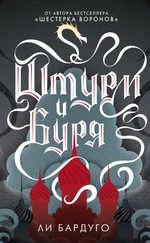“They tried to kill me, Hellie,” she rasped as she slid into the dark. That means I get to try to kill them.
Manuscript, the young upstart among the Houses of the Veil but arguably the society that has weathered modernity best. It is easy to point to its Oscar winners and television personalities, but their alumni also include advisers to presidents, the curator of the Metropolitan Museum of Art, and, perhaps most tellingly, some of the greatest minds in neuroscience. When we speak of Manuscript, we talk of mirror magic, illusions, great glamours of the type that can make a star, but we would do well to remember that all of their workings derive from the manipulation of our own perception.
—from The Life of Lethe: Procedures and Protocols of the Ninth House
Don’t go to a Manuscript party. Just don’t.
— Lethe Days Diary of Daniel Arlington
(Davenport College)
The night of the Manuscript party, Darlington spent the early-evening hours with the windows of Black Elm lit, handing out candy, jack-o’-lanterns lining the driveway. He loved this part of Halloween, the ritual of it, the tide of happy strangers arriving on his shores, hands outstretched. Most times Black Elm felt like a dark island, one that had somehow ceased to appear on any chart. Not on Halloween night.
The house lay in the gentle swell of a hill not far from the lands that had once belonged to Donald Grant Mitchell, and its library was stocked with multiple copies of Mitchell’s books: Reveries of a Bachelor , Dream Life , and the only title his grandfather had deemed worth reading, My Farm of Edgewood. As a boy, Darlington had been drawn in by the mysterious sound of Mitchell’s pen name, Ik Marvel, and woefully disappointed by the lack of anything magical or marvelous in his books.
But that had been his feeling about everything. There should be more magic. Not the creased-greasepaint performances of clowns and hack illusionists. Not card tricks. The magic he’d been promised would be found at the backs of wardrobes, under bridges, through mirrors. It was dangerous and alluring and it did not seek to entertain. Maybe if he’d been raised in an ordinary house with quality insulation and a neatly mowed front yard, instead of beneath Black Elm’s crumbling towers, with its lakes of moss, its sudden, sinister spikes of foxglove, its seeping mist that crawled up through the trees in the autumn dusk, maybe then he would have stood a chance. Maybe if he’d been from somewhere like Phoenix instead of cursed New Haven.
The moment that doomed him hadn’t even really belonged to him. He was eleven years old, at a picnic organized by the Knights of Columbus, which their housekeeper Bernadette had insisted on bringing him to because “boys need fresh air.” Once they’d arrived at Lighthouse Point, she sequestered herself beneath a tent with her friends and a plate of deviled eggs and told him to go play.
Darlington had found a group of boys around his age, or they’d found him, and they spent the afternoon running races and competing in carnival games, then inventing their own games when those got boring. A tall boy named Mason, with buzzed hair and buck teeth, had somehow become the day’s decision maker—when to eat, when to swim, when a game got dull—and Darlington was happy to follow in his wake. When they tired of riding the old carousel, they walked down to the edge of the park that looked out over the Long Island Sound and the New Haven Harbor in the distance.
“They should have boats,” said Mason.
“Like a speedboat. Or a Jet Ski,” said a boy named Liam. “That would be cool.”
“Yeah,” said another kid. “We could go across to the roller coaster.” He’d been tagging along with them all afternoon. He was small, his face dense with sand-colored freckles and now sunburned across the nose.
“What roller coaster?” Mason asked.
The freckled kid had pointed across the sound. “With all the lights on it. Next to the pier.”
Darlington had looked into the distance but seen nothing there, just the fading day and a flat spit of land.
Mason stared, then said, “What the fuck are you talking about?”
Even in the growing twilight, Darlington had seen red spreading hot across the freckled kid’s face. The kid laughed. “Nothing. I was just fucking with you.”
“Tool.”
They’d walked down to the thin sliver of beach to run back and forth in the waves, and the moment had been forgotten. Until months later, when Darlington’s grandfather opened his paper at the breakfast table and Darlington saw the headline: REMEMBERING SAVIN ROCK. Beneath it was a picture of a big wooden roller coaster jutting into the waters of the Long Island Sound. The caption read: The legendary Thunderbolt, a favorite at Savin Rock amusement park, destroyed by a hurricane in 1938.
Darlington had cut the picture from the paper and taped it above his desk. That day at Lighthouse Point, that sunburned, freckled boy had seen the old roller coaster. He’d believed they could all see it. He hadn’t been pretending or joking around. He’d been surprised and embarrassed, and then he’d shut up quick. As if he’d had something like that happen before. Darlington had tried to remember his name. He’d asked Bernadette if they could go to the Knights of Columbus for bingo, potluck dinners, anything that might put him back in that kid’s path. Eventually his grandfather had put a stop to it with a growled “Stop trying to turn him into a goddamn Catholic.”
Darlington had grown older. The memory of Lighthouse Point had grown dimmer. But he never took the picture of the Thunderbolt from his wall. He would forget about it for weeks, sometimes months at a time, but he could never shake the thought that he was seeing only one world when there might be many, that there were lost places, maybe even lost people who might come to life for him if he just squinted hard enough or found the right magic words. Books, with their promises of enchanted doorways and secret places, only made it worse.
The feeling should have ebbed away with time, worn down by the constant, gentle disappointments of growing up. But at sixteen, with his brand-new provisional driver’s license tucked into his wallet, the first place Darlington had taken his grandfather’s old Mercedes was Lighthouse Point. He’d stood at the edge of the water and waited for the world to reveal itself. Years later, when he met Alex Stern, he had to resist the urge to bring her there too, to see if the Thunderbolt might appear to her like any other Gray, a rumbling ghost of joy and giddy terror.
When full dark fell and the stream of children in their goblin masks slowed to a trickle, Darlington put on his own costume, the same one he wore every year—a black coat and a pair of cheap plastic fangs that made him look like he’d just had dental surgery.
He parked in the alley behind the Hutch, where Alex was waiting, shivering in a long black coat that he’d never seen before.
“Can’t we drive?” she asked. “It’s freezing.”
Californians. “It’s fifty degrees and we’re walking three blocks. Somehow you’ll manage this journey through the tundra. I pray you’re not wearing a skimpy cat ensemble underneath that. We’re supposed to project some measure of authority.”
“I can do my job in hot pants. I can probably do it better.” She executed a half-hearted karate kick. “More room to move.” At least she’d worn practical boots.
In the light from the streetlamp, he could see she’d heavily lined her eyes and had big gold earrings on. Hopefully she hadn’t worn anything too provocative or appropriative. He didn’t want to spend the evening fielding judgmental snipes from Manuscript because Alex had felt the urge to dress as sexy Pocahontas.
Читать дальше
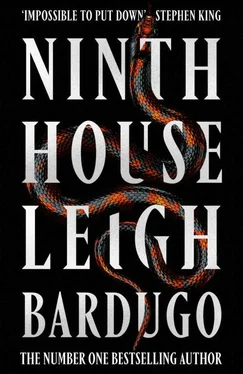
![Лей Бардуго - Тень и кость [litres]](/books/25543/lej-bardugo-ten-i-kost-litres-thumb.webp)
![Лей Бардуго - Продажное королевство [CROOKED KINGDOM]](/books/31160/lej-bardugo-prodazhnoe-korolevstvo-crooked-kingdom-thumb.webp)
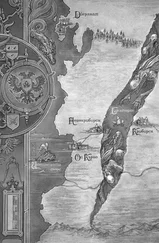
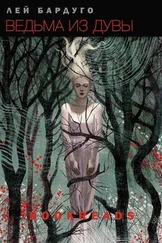
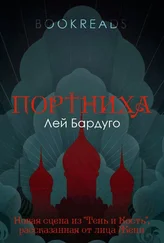
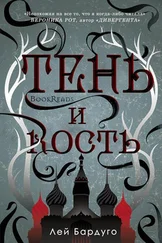
![Лей Бардуго - Король шрамов [litres]](/books/405552/lej-bardugo-korol-shramov-litres-thumb.webp)
![Лей Бардуго - Язык шипов [litres]](/books/415143/lej-bardugo-yazyk-shipov-litres-thumb.webp)
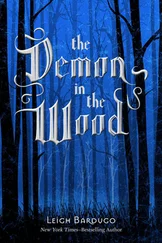

![Лей Бардуго - Чудо-Женщина. Вестница войны [litres]](/books/427404/lej-bardugo-chudo-zhenchina-vestnica-vojny-litres-thumb.webp)
